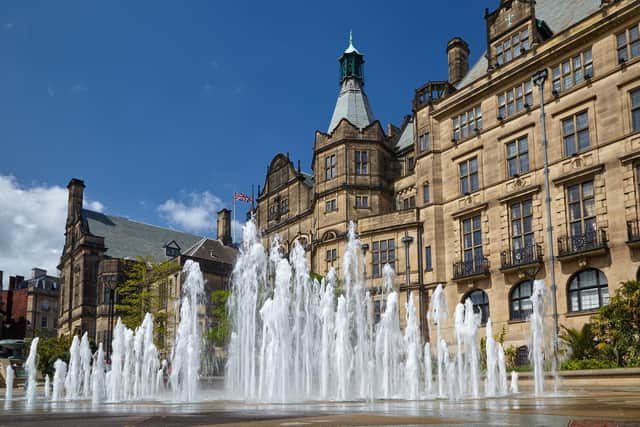Sheffield Council will not change street names, monuments or collections which 'perpetuate racist or outdated messages'
The review was co-produced by Sheffield Council, Sheffield Museums, the University of Sheffield and Sheffield Hallam University and presented to Sheffield’s Race Equality Commission earlier this year.
The initial purpose was to find if Sheffield had any offensive statues or monuments following Black Lives Matter protests that saw the toppling of a statue of Edward Colston, a slave trader, in Bristol last year.
Advertisement
Hide AdAdvertisement
Hide AdIt stated there were no statues such as that in Sheffield but there are features across the city in street names, collections and public art which “perpetuate racist, outdated and uncomfortable messages” and an inadequate expression of its large and diverse population.


A consultation on the findings took place between July and September and found most who responded did not want to see any changes.
A spokesperson for the council said: “We acknowledge this strong feeling and are not currently intending to change any of the existing street names or remove any statues.
“The report into statues and street names is only part of the council’s wider responses to making the city and its places, spaces and communities that make up the city. The report of the Race Equality Commission will be published in 2022 and we will act on its recommendations.
Advertisement
Hide AdAdvertisement
Hide Ad“The council has also recently established local area committees which will bring new ways of working with a much more local focus.”
What were the findings of the review?
Streets named after people who were heavily involved in slavery, violent suppression and empire were found across the city such as Canning Street, Cannon Hall Road, Dundas Road and Havelock Street.
A stark lack of diversity in the city’s monuments was also found. Of the 100 on the council’s asset register, none were dedicated to a non-white figure and of the 20 ‘Sheffield Legends’ plaques celebrating contemporary Sheffield personalities set into the pavement outside the Town Hall, there is only one – for Dame Jessica Ennis-Hill – celebrating someone of ethnically diverse heritage.
It was noted in the report that many of the historical figures celebrated in Sheffield were social reformers and abolitionist campaigners such as James Montogomery and Mary Anne Rawson but these should be recognised in a more representative way in the future.
Advertisement
Hide AdAdvertisement
Hide AdThe same problem was found with the city’s public art works, although works over the last five years were not yet added, of the 277 works listed, only one was by an artist who has an ethnically diverse heritage.
Library staff identified older titles which could be seen as racist or selective in historical accuracy but these were not removed as they “reflect society and thinking at a particular time”.
Sheffield City Archives said its collection reflects more of what was given and it will aim to curate a more representative view of the city going forward.
Sheffield Museums recognised work needed to be done to decolonise its collections through reinterpreting, returning items to communities of origin and collaborating with communities and partners across the city.
